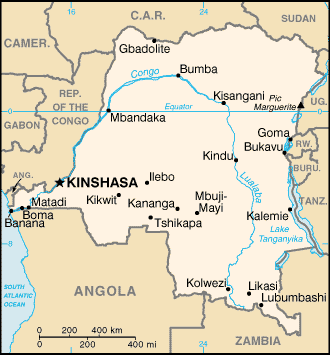Bike Tour Elevates Congo Rape Awareness
 What motivates 11 20-somethings to spend seven weeks in the hot sun traveling more than 2,500 miles on a bicycle? In a word, love.
What motivates 11 20-somethings to spend seven weeks in the hot sun traveling more than 2,500 miles on a bicycle? In a word, love.
On Thursday, May 26, a group of 11 college students and recent grads will set off from Daytona Beach, Fla., and pedal their way north to Portland, Maine. Along the way they will stop at churches in 13 states to raise awareness and “compassion capital” for the women of the Congo.
The effort is the brainchild of 22-year-old Lewie Briggs, a recent graduate of Franklin and Marshall College in Lancaster, Pa. Following a trip to the Democratic Republic of the Congo last year with American Bible Society, Briggs was inspired to partner with the She’s My Sister campaign. Led by American Bible Society, She’s My Sister is a collaborative effort of organizations from around the globe dedicated to providing Scripture-based trauma healing programs and practical aid to the women of the Democratic Republic of the Congo and the surrounding region.
For decades, paramilitary groups in the Great Lakes region of Africa – and Congo in particular – have used rape as a weapon of war to terrorize women even as they murder the men of the region and abduct its children.
“The Congo has been called the rape capital of the world,” says Briggs. “After meeting these remarkable women who have survived the unimaginable, I knew I had to do something to help them reclaim their lives.”
Briggs, who had never been much of a bike rider let alone a seasoned cyclist, worked with American Bible Society to create the She’s My Sister Bike Tour to symbolize the journey that the women of the Congo are on to overcome trauma – and to carry their story to their brothers and sisters in the U.S.
The centerpiece of the She’s My Sister initiative is Scripture-based trauma healing. “In this region of the world, many devout Christian women mistakenly believe that to grieve over the brutality they’ve experienced is to question the sovereignty of God,” says project director John Walter. “She’s My Sister demonstrates through Scripture that lament and grief are acceptable and healing responses to trauma.”














































